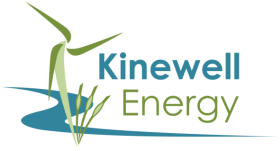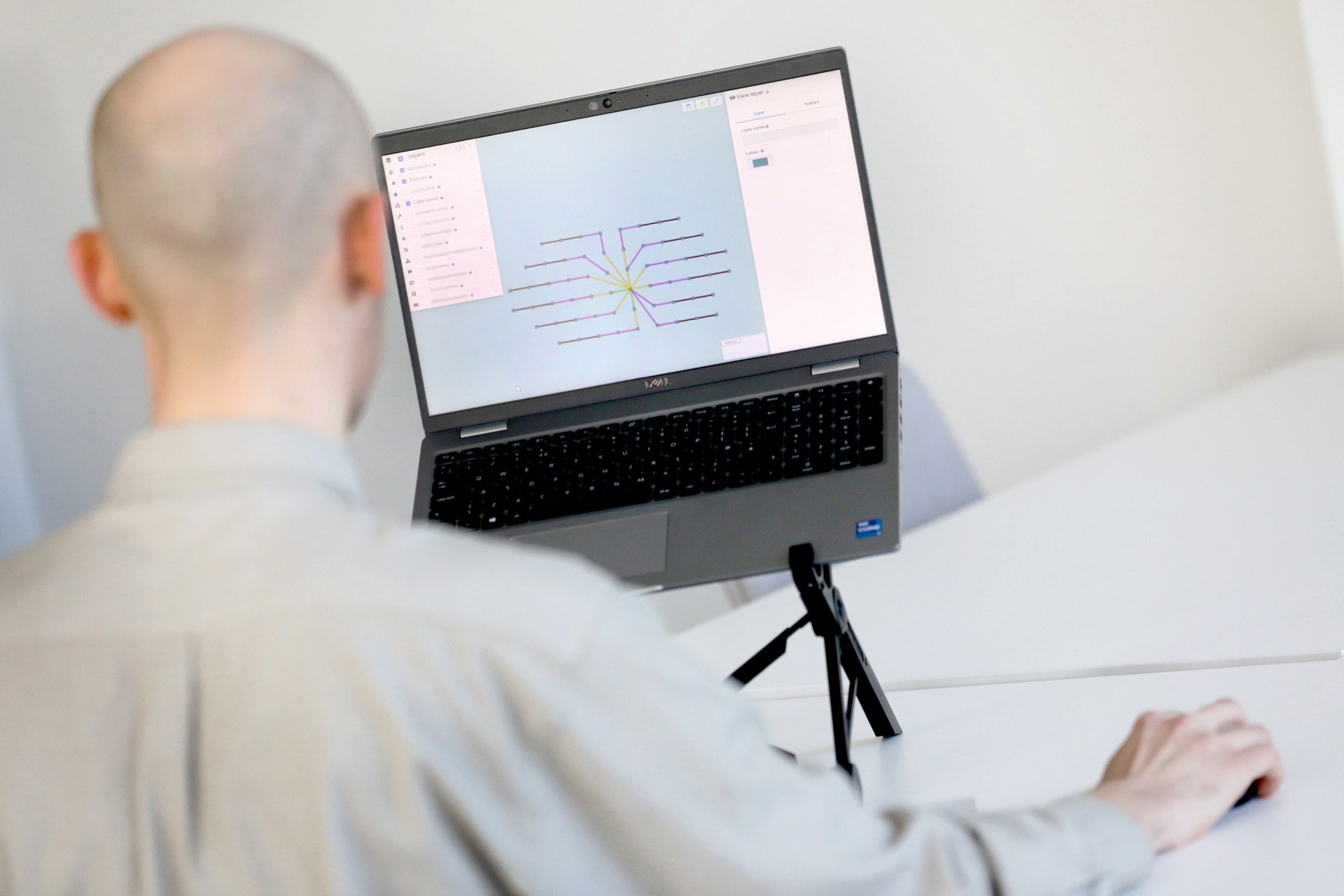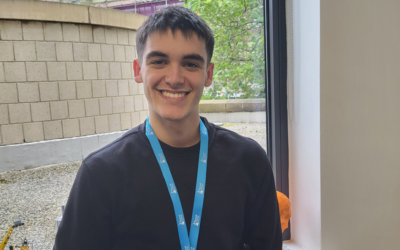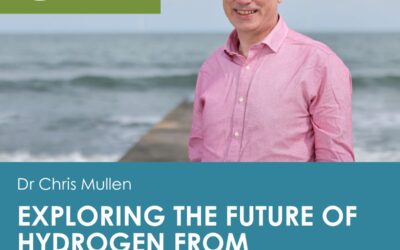RS, a trading brand of RS Group plc, a global provider of product and service solutions for industrial customers, has pledged support to help Kinewell Energy deliver a schools-friendly version of its state-of-the-art AI-based software KLOC – which automates the cable layout design of new offshore wind farms – to inspire students in STEM based subjects and for careers in the AI, digital technologies, and net-zero transition sectors.
KLOC (Kinewell Layout Optimisation of Cable) is Kinewell’s flagship product that enhances engineering productivity and delivers lower cost offshore wind designs, by optimising the ‘dot-to-dot’ cable layout, linking the turbines to the offshore substation in the most economical way. RS Local in Newcastle approached the firm with a view to supporting an offshore wind and education-related initiative, and the resulting combined vision is to develop a version of KLOC to inspire students at secondary and further education level in these growing and vital sectors.
Dr Andrew Jenkins, CEO of Kinewell Energy, said: “Educating young people about renewable energy, giving them early insights and access to the offshore wind industry and the digital solutions that companies can provide, is vital to the future of the sector and deliver the net-zero transition. It is the responsibility of operators in this industry to support the education sector to inspire young people and build skills, particularly in areas where there are skills gaps and where future jobs are expected to be created. This initiative will help the North East deliver its strategic ambition of capturing the economic opportunity created through the growth of offshore wind, and the increasing shift towards digitalisation throughout the wider economy.
“Thanks to the support of RS, which is funding the programme development, Kinewell will deliver the educational KLOC tool free at the point of use, enabling local, national and international impact. We are keen for it to go as far and wide as possible as a common resource for teachers to use, as well as offshore wind developers, cable manufacturers and other industry players to use in their education outreach to inspire the next generation,” he added.
An independent report of the offshore wind champion cites a need to increase the UK skills pool threefold, from the current 27,000 to at least 100,000 employees by the end of the decade, to meet the UK’s ambition of 50GW of offshore wind by 2030. This initiative will go some way towards helping to achieve that. The UK is just nine percent of the worldwide market and therefore the development of skills enabling the growth of local offshore wind focused businesses presents a significant export opportunity for the region.
Veronica Maxted, director of renewables at RS Group, said: “We’re delighted to be supporting the development of this highly innovative software for students with a five figure sum in funding.
“The offshore wind sector is very important for the UK because of our exposed position in the Atlantic. The operation and maintenance sub-sector of the offshore wind industry is estimated to create £1.3 billion per annum by 2030, so our support of Kinewell’s software development to inspire young people in this industry is an investment for RS as we expand the development of solutions for our customers in this area. It’s also part of a collaborative effort that all players in this arena must be involved in, to secure this key industry for generations to come,” she added.
The software development is now underway and it is hoped it will inspire new interest in curriculum areas like maths, science and technology, where formulas such as Pythagoras’s hypotenuse theorem are often seen by students as irrelevant, but underpin the KLOC software. KLOC uses the hypotenuse of the triangle to work out the length of cables between turbines. It puts a GCSE curriculum element into a real-world practical application scenario.
Students will design their own cable layouts using the calculated cable lengths, competing with one another to create the lowest cost wind farm. In doing so they will learn about the foundations of advanced mathematical optimisation. Students will also be able to learn about logic and electricity, since there is a maximum number of turbines that can be connected to each cable before they would be overloaded with too much power and melt in a similar way to a household fuse. It’s a far more interactive way of delivering significant elements of the maths and physics syllabus’, and teachers will be able to motivate students through competition, with a leader board for the design of the lowest cost wind farm.
Dr Andrew Jenkins concluded: “Offshore wind will play a substantial and critical role in the generation of industrial scale clean energy. In the face of a severe skills gap for delivering the net-zero transition at the pace required, the need to spark interest in this sector at the right educational level is vital, if we are to avoid the worst impacts of climate change.”




